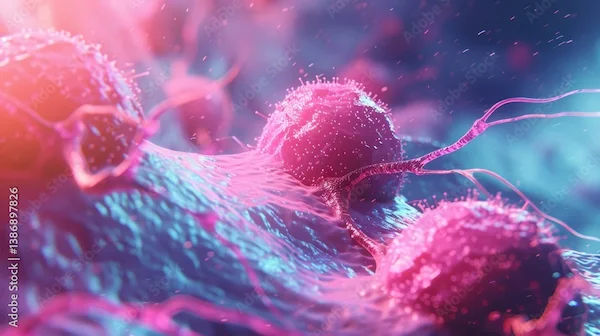Understanding Bone Tumors and Their Types
Gain a comprehensive understanding of bone tumors, including their different types (benign and malignant), causes, symptoms, and diagnostic approaches. Learn essential information to identify and address bone health concerns.

Written by Dr. J T Hema Pratima
Reviewed by Dr. Dhankecha Mayank Dineshbhai MBBS
Last updated on 13th Jan, 2026

Bone tumors can be a scary topic, but understanding them can help you feel more in control of your health. Whether you or a loved one has been diagnosed with a bone tumor or you're just curious to learn more, this article will break down the basics in a simple, friendly way.
What Are Bone Tumors?
Bone tumors are abnormal growths that develop in the bones. They can be either benign (noncancerous) or malignant (cancerous). While benign tumors are usually not lifethreatening, malignant tumors can spread to other parts of the body and require prompt treatment.
Types of Bone Tumors
Bone tumors are classified based on their origin and behavior. Here are the most common types:
1. Benign (Non-Cancerous) Bone Tumors
These tumors grow slowly and do not spread. Some common types include:
Osteochondroma – The most common benign bone tumor, often found in teenagers. It forms near growth plates.
Osteoid Osteoma – A small, painful tumor that usually affects long bones like the femur or tibia.
Giant Cell Tumor – Typically occurs near joints (knee, wrist) and can be locally aggressive.
Enchondroma – Forms in the cartilage inside bones, often in the hands or feet.
2. Malignant (Cancerous) Bone Tumors
These are more serious and require immediate medical attention. Common types include:
Osteosarcoma – The most common bone cancer, usually affecting children and young adults. It often develops in long bones (arms, legs).
Chondrosarcoma – A cancer of cartilage cells, mostly seen in adults over 40.
Ewing Sarcoma – A rare, aggressive tumor that affects bones or soft tissues, mostly in children and teens.
Metastatic Bone Cancer – Cancer that spreads to bones from other organs (e.g., breast, lung, prostate).
Consult Top Oncologist For Personalised tips
Symptoms of Bone Tumors
Symptoms vary depending on the type and location of the tumor. Common signs include:
Persistent bone pain (worse at night)
Swelling or a lump near the affected bone
Unexplained fractures (bones breaking easily)
Fatigue or weight loss (in malignant cases)
If you experience any of these symptoms, consult a doctor for proper evaluation.
Causes and Risk Factors
The exact cause of bone tumors is often unknown, but certain factors may increase risk:
Genetic conditions (e.g., LiFraumeni syndrome, Paget’s disease)
Previous radiation therapy
Bone injuries (though not directly proven)
Age (some tumors are more common in children, others in adults)
Diagnosis and Treatment
If a bone tumor is suspected, doctors may recommend:
Imaging tests (Xrays, MRI, CT scan)
Biopsy (taking a small tissue sample for testing)
Blood tests (to check for cancer markers)
Treatment Options
Treatment depends on the tumor type, size, and whether it’s cancerous:
Benign Tumors – May only need monitoring. If they cause pain or complications, surgery may be required.
Malignant Tumors – Treatment may include:
Surgery (removing the tumor and sometimes part of the bone)
Chemotherapy or Radiation (to kill cancer cells)
Targeted Therapy (for specific cancer types)
Living with Bone Tumors
If you or a loved one has a bone tumor, here are some tips to manage health:
Follow your doctor’s advice – Stick to treatment plans and regular checkups.
Maintain a healthy diet – Calcium and vitamin D support bone health.
Stay active safely – Gentle exercises (like walking) can help, but avoid highimpact activities if bones are weak.
Seek support – Talking to a counselor or joining a support group can help emotionally.
When to See a Doctor?
If you notice:
Persistent bone pain
Sudden swelling or a lump
Unexplained fractures
Don’t ignore these signs—early detection improves outcomes.
Need Help? Book a Consultation Today
If you suspect a bone tumor or need expert advice, Apollo24|7 offers easy online consultations with specialists. You can also schedule diagnostic tests for a thorough checkup.
Stay informed, stay proactive! Your bone health matters.
Consult Top Oncologist
Consult Top Oncologist For Personalised tips

Dr Garima Nirmal
Paediatric Haematologist
8 Years • MBBS, MD, DM
Delhi
Apollo Hospitals Indraprastha, Delhi

Dr Minakshi Bansal
Paediatric Haematologist
8 Years • MBBS, MD PEDIATRICS, FIAP (PHO)
Delhi
Apollo Hospitals Indraprastha, Delhi
(25+ Patients)

Dr Shaikat Gupta Director Surgical Onco
Surgical Oncologist
35 Years • MBBS (University Gold Medalist), MS, FRCSEd
Kolkata
Apollo Multispeciality Hospitals , Kolkata, Kolkata
(250+ Patients)

Dr. Shishir Seth
Haemato Oncologist
20 Years • MBBS, MD, DM (Clinical Hematology)
Delhi
Apollo Hospitals Indraprastha, Delhi
(75+ Patients)

Dr. Sushith C
General Physician
2 Years • MBBS
Bengaluru
PRESTIGE SHANTHINIKETAN - SOCIETY CLINIC, Bengaluru
Consult Top Oncologist

Dr Garima Nirmal
Paediatric Haematologist
8 Years • MBBS, MD, DM
Delhi
Apollo Hospitals Indraprastha, Delhi

Dr Minakshi Bansal
Paediatric Haematologist
8 Years • MBBS, MD PEDIATRICS, FIAP (PHO)
Delhi
Apollo Hospitals Indraprastha, Delhi
(25+ Patients)

Dr Shaikat Gupta Director Surgical Onco
Surgical Oncologist
35 Years • MBBS (University Gold Medalist), MS, FRCSEd
Kolkata
Apollo Multispeciality Hospitals , Kolkata, Kolkata
(250+ Patients)

Dr. Shishir Seth
Haemato Oncologist
20 Years • MBBS, MD, DM (Clinical Hematology)
Delhi
Apollo Hospitals Indraprastha, Delhi
(75+ Patients)

Dr. Sushith C
General Physician
2 Years • MBBS
Bengaluru
PRESTIGE SHANTHINIKETAN - SOCIETY CLINIC, Bengaluru

